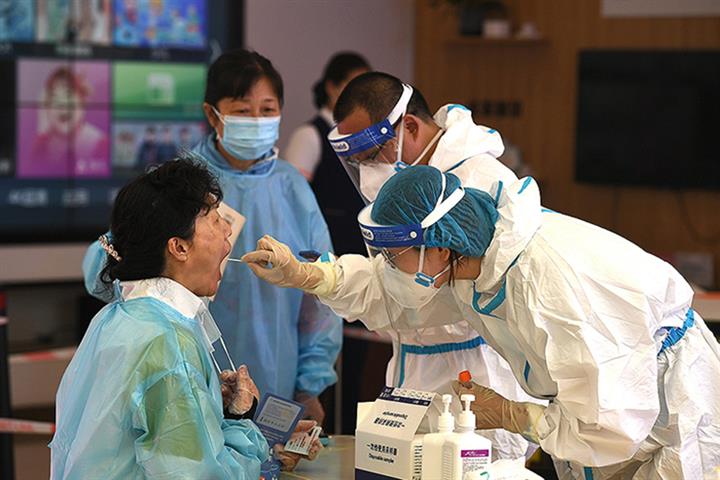 Chinese Experts Suggest Prioritizing Treatment of Severe, Critical Covid-19 Cases
Chinese Experts Suggest Prioritizing Treatment of Severe, Critical Covid-19 Cases(Yicai Global) Nov. 11 -- The latest wave of Covid-19 in China, caused by the omicron variant BA.5.2, has caused a large number of infections, but there have been no critically ill patients. So experts suggest that local governments should allocate medical resources and give priority to ensuring the needs of severe cases.
The virulence of the coronavirus has weakened as statistics show that over 99 percent of Covid-19 cases are mild and asymptomatic, with low treatment difficulty, according to Jin Dongyan, a professor at the University of Hong Kong’s School of Biomedical Sciences.
Given this situation, China can adhere to existing preventive measures while setting up a stratified Covid-19 diagnosis and treatment system to prioritize allocation of medical resources to the elderly and critically ill with underlying medical conditions, Jin told Yicai Global.
According to statistics released by the National Health Commission today, the Chinese mainland reported 1,209 confirmed infections and 9,520 asymptomatic cases yesterday, but no new deaths. As of midnight, there were 9,915 confirmed cases on the mainland, including 25 severe ones, with 60,282 asymptomatic infections still under medical observation.
Quarantine measures should be optimized further for asymptomatic infections, mild cases who will recover by themselves and some older patients in good physical condition, Jin suggested, adding that these groups should not take up hospital resources.
Chang Rongshan, a virology expert, told Yicai Global that to control the pandemic at a level that does not cause a run on medical resources, it is first necessary to let confirmed cases access medicines as soon as possible.
Secondly, it is essential to optimize the management of asymptomatic infections to control the scope of lockdowns to a minimum, he added
The NHC issued a series of optimized Covid-19 control and prevention measures today, adjusting the management of people in high-risk areas from seven-day centralized quarantine to seven-day home quarantine, with restrictions on close contacts changed to five-day centralized quarantine plus three days in home quarantine. Previously, close contacts were required to stay seven days in government-approved accommodations and three days at home.
The Chinese government advocates scientific and targeted pandemic prevention and control to balance Covid-19 efforts and socio-economic development, Jiang Qingwu, a professor at Fudan University's School of Public Health, pointed out.
In the future, limited medical resources should be freed from Covid-19 testing and invested in the diagnosis and treatment of symptomatic cases, Jiang told Yicai Global.
Editors: Dou Shicong, Peter Thomas